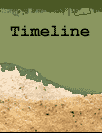


Before Parliament
Leyla Zana was born the daughter of a peasant in Bache, a town near the Kurdish city of Diyarbakir, Turkey, in May of the year 1961. When Leyla was a child, her father beat her mother often and expected his wife to be obedient. He saw Zana and her sisters as insignificant in comparison with their brother. At fifteen, Leyla married Mehdi Zana, who was more than twice her age, and who was also a cousin of her father. She was outraged, and physically attacked her father, before finally following his orders to marry the man. Before she was forced to marry Mehdi, Leyla refused to don the hajib, or traditional headscarf, and soon after their marriage again chose not to wear it. Although Zana had always had the natural tendency to fight for what she believed in, she often did what her father, and then her husband, wished her to do. Her primary school education ended abruptly after a mere year and a half, because her restrictive father was against the education of women. Leyla also accepted as truth the government's assertions that being Kurdish was not something to be proud of.
When explaining the change that occurred in her own mentality, Leyla Zana uses the word "gradual." However, it seems as if it began with her entry into the world of Turkish politics, which occurred when her husband Mehdi, who was politically involved in the struggle for Kurdish rights, was jailed. Leyla was forced to support herself and her young son, make decisions, and develop her own opinions. She began to read about politics, protested her husband's imprisonment, and came to embrace her Kurdish identity, which for so long had been suppressed.
As a result of her travels accompanying Mehdi, whose location of detention was often changed, Zana developed the ability to communicate in Turkish. Through independent study, she gained a high school diploma, despite the setbacks she had encountered on account of her father's traditional views, and with the support of her progressive husband. Leyla Zana was the first woman scholar in all of Diyarbakir to graduate from high school without ever taking courses there. During the 1980s, she established and headed a group advocating the rights of women, which came to have locations in both Diyarbakir and Istanbul. Zana was an active member of the Human Rights Association, and was both a writer for and afterwards the editor of the newspaper Yeni Ulke. In 1988, Leyla Zana went to see her husband in a Turkish jail, but was not admitted, and could hear the prisoners being abused inside. She participated in an uprising along with other visitors, and was arrested and held in custody for 57 days. During the first week of her incarceration, Zana was questioned and suffered brutal torture, nightmares of which still haunt her.